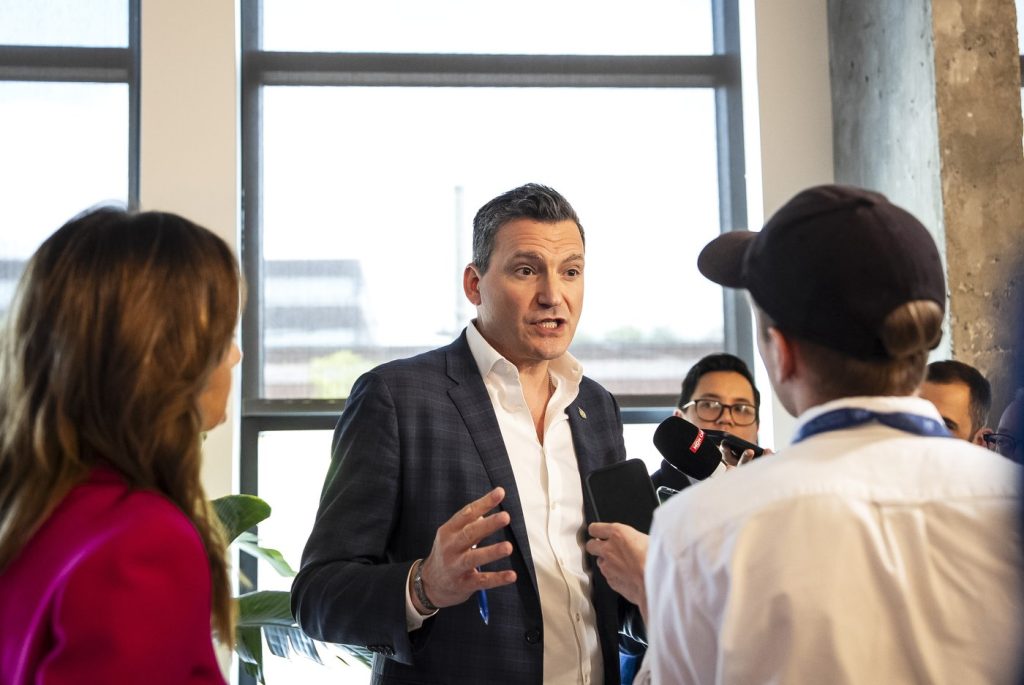OTTAWA Canada's artificial intelligence minister is keenly monitoring ongoing court cases in both Canada and the U.S. to inform the government's regulatory approach to artificial intelligence. This move reflects a growing concern over the intersection of copyright law and AI technology as companies venture into uncharted legal waters.
Some AI firms have claimed early successes in court decisions across the U.S. As a prominent example, OpenAI is currently contesting the jurisdiction of an Ontario court regarding a lawsuit initiated by a coalition of news publishers. The government's focus on AI regulation includes considerations of copyright, particularly how cultural sovereignty and the rights of creators are integrated into this regulatory framework.
Despite the pressing considerations, there are presently no plans for a standalone copyright bill. Minister Evan Solomon's office has stated that it is "closely monitoring the ongoing court cases and market developments" to help navigate the regulatory landscape for AI moving forward. It's still uncertain how long these court cases will take to determine the permissible use of copyrighted content by AI companies for training purposes.
The significant Canadian case arose late last year when a coalition of news publishers, including The Canadian Press, Torstar, the Globe and Mail, Postmedia, and CBC/Radio-Canada, filed a suit against OpenAI. They allege the company unlawfully scraped large amounts of their news content to train its generative AI system, profiting from this content without receiving prior consent or compensating the publishers.
The publishers have articulated in court filings that OpenAI has "engaged in ongoing, deliberate, and unauthorized misappropriation" of their valuable news media works. They have accused OpenAI of choosing to misappropriate intellectual property rather than seeking the information through legal channels, leading to significant commercial benefits for the company at their expense.
In contrast, OpenAI has vigorously denied these allegations, asserting that its AI models are trained on publicly available data and adhere to principles of fair use recognized in international copyright laws. Moreover, the company argues that it is not operationally or physically present in Ontario, claiming that the lawsuit lacks a "real or substantial connection" to the province.
OpenAI is also requesting the court to seal specific documents that contain "commercially sensitive" information, including details about its corporate structure and the methods used for web crawling and model training. The court is scheduled to consider the sealing motion on July 30, as detailed in court documents.
The affidavit from OpenAI emphasizes the competitive nature of the AI industry, indicating that access to its confidential information would provide undue advantages to its rivals, which includes major tech firms such as Google and Amazon, as well as emerging startups in the field.
In the United States, a series of lawsuits related to AI systems and copyright law are ongoing, with some originating as early as 2023. Notably, in late June, AI companies celebrated legal victories, including one involving a cohort of authors led by comedian Sarah Silverman. A judge ruled that the AI systems' use of published works constituted fair use and noted that the authors had not sufficiently demonstrated potential market dilution.
However, the judge clarified that this ruling applied strictly to the specific case at hand and did not imply that similar uses of copyrighted material by other firms, such as Meta, were automatically legal. Similarly, a judge in a separate case ruled in favor of the AI company Anthropic, stating their use of published books for AI training was fair use, with an important caveat that they could not use pirated copies.
Jane Ginsburg, a professor of law at Columbia University with expertise in intellectual property, cautioned against simplifying these rulings as blanket victories for AI companies. She highlighted that critical issues surrounding the nature of the sources used and market dilution will undoubtedly continue to emerge in future litigation.











